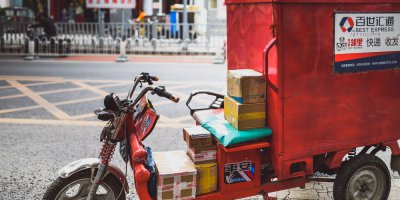
Singles Day has been more muted in recent years as Beijing cracks down on online platforms and state media publicity has dropped off. Source: Alibaba
China’s Singles Day 2022 winners and losers
Originally launched by Alibaba as an e-commerce promotional gimmick in 2009, Singles Day takes place every year in China and elsewhere on November 11, and has morphed into the world’s largest shopping festival, dwarfing similar US events such as Black Friday and Cyber Monday in terms of sales. The event’s title riffs on a tongue-in-cheek celebration of singlehood inspired by the four ones — “11/11” — that denote the November 11 date.
Once a celebration of online shopping excess as digital consumerism took off across the Asia Pacific region (and sparking numerous imitator events such as the monthly one-off sales days in Southeast Asia, similarly labelled 9.9, 10.10 and so on) and led by Alibaba’s effervescent founder Jack Ma, Singles Day has been more muted in recent years as Beijing cracks down on online platforms and state media publicity has dropped off.
Nonetheless, the combined gross value of products sold since late October “may surpass a trillion yuan” for the first time, Xiaofeng Wang, principal analyst at research firm Forrester, said earlier in a note. Sales revenues across platforms operated by tech giants such as Alibaba and JD.com hit around 262 billion yuan (US$36.7 billion) between Thursday evening and Friday afternoon, according to an estimate by research firm Syntun.
Nowadays dubbed the 11.11 Global Shopping Festival, this year’s Singles Day featured over 290,000 brands from over 90 countries and regions across 7,000 product categories. On Alibaba’s Tmall Global platform, over a thousand international brands more than doubled the gross merchandise volume (GMV) they moved last year.
Social commerce livestreams were also a big winner, with over 300 million watching livestreaming sessions hosted on Taobao Live since the start of the presale period. Over the entire sales period, 62 influencer and merchant-run livestreaming channels surpassed 100 million yuan (US$14.1 million) in GMV, and 632 influencer and merchant-run livestreaming channels surpassed 10 million (US$1.4 million) in GMV. And on Singles Day itself, rural livestreamers on Taobao Live hosted in excess of 100,000 livestreaming sessions featuring local products.
Despite some record profitability and sustainability wins, Singles Day 2022 had some notable losses as well. Analysts said demand was more muted than in previous years, while consumers told AFP that a lack of spending power and an economy groaning under a hardline zero-Covid policy had dampened desire to spend.
Businesses and consumers alike have been laid low by China’s Covid prevention policies, which see officials wield snap lockdowns, mass testing and lengthy quarantines in response to a handful of cases. Beijing resident Li Xiaofeng told AFP that the “state of the whole economy” was likely putting platforms and merchants under more pressure, “so they are offering fewer discounts”.

Source: Alibaba
China is the last major economy wedded to a zero-Covid strategy, with officials insisting they will stick “unswervingly” to the policy. But Beijing announced the relaxation of some of its harsher curbs on November 11, cutting quarantine for overseas arrivals and scrapping COVID-related flight bans.
Even event pioneer Alibaba has had to pull back in the face of a challenging macroeconomic climate and what appears to be lackluster support from the government. In April 2021, regulators fined Alibaba US$2.8 billion for anti-competitive practices, and Ma’s public presence has been noticeably diminished over the past two years.
Alibaba’s 2021 Singles Day sales hit 540.3 billion yuan (US$76.1 billion), but this year, the e-commerce bigwig has not released full sales figures for the first time ever. “In terms of communications from the platform companies around the festival, there’s been a shift away from celebrating excessive consumption and emphasizing gross merchandise value (GMV),” said Jacob Cooke, the CEO of e-commerce consultancy WPIC Marketing + Technologies.
“The shift has been going on for a few years now, and that’s related to common prosperity, the anti-monopoly drive,” he added, referring to President Xi Jinping’s ongoing drive to curb the influence of big tech.
But nonetheless, there was still silver linings to this cloud — or rather, cloud computing itself was the silver lining. In its second year running wholly on the cloud, the 11.11 Global Shopping Festival saw improved high-performance computing efficiency, more efficient energy consumption and use of more innovative technology on these platforms to offer more immersive shopping experience.
Besides supporting extended reality using Alibaba’s 3D modelling proprietary technology and delivering nearly 2 million packages by Xiaomanlv vehicles, Alibaba’s last-mile logistics unit, Alibaba Cloud’s five hyper-scale data centers across China also doubled the amount of clean energy used to support this year’s 11.11 compared to last year.
With reporting © Agence France-Presse
READ MORE
- Data Strategies That Dictate Legacy Overhaul Methods for Established Banks
- Securing Data: A Guide to Navigating Australian Privacy Regulations
- Ethical Threads: Transforming Fashion with Trust and Transparency
- Top 5 Drivers Shaping IT Budgets This Financial Year
- Beyond Connectivity: How Wireless Site Surveys Enhance Tomorrow’s Business Network


